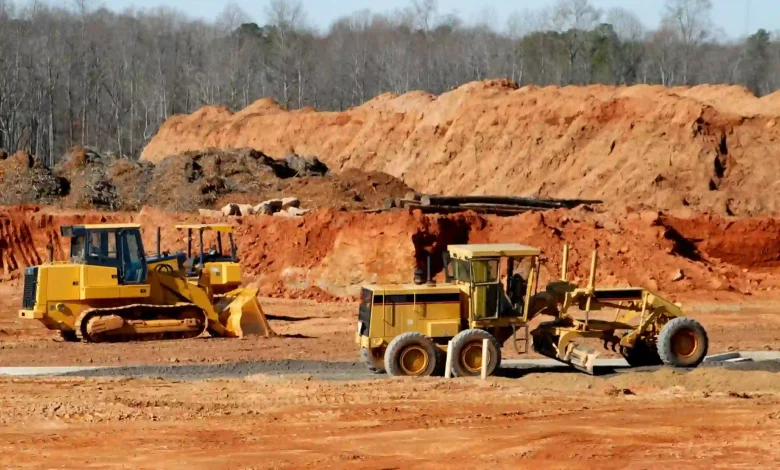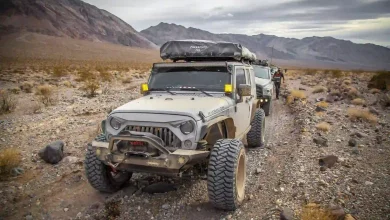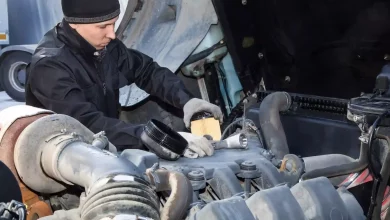7 Questions to Ask Before Investing in Heavy Haul Equipment

In dealing with heavy loads, there is no room for error. If a transport is damaged, the cost can quickly surpass how much it cost to move the material.
This is why companies have begun to invest in heavy haul equipment. Its ability to navigate around tight spaces and heavy loads makes it an asset to any company. But what do you need to know when it comes to these moving machines?
Below are some questions to ask yourself before deciding to invest in heavy haul equipment. Read on!
1. What Is the Total Cost of Ownership?
A comprehensive evaluation of all associated costs allows a business to make informed decisions. It discerns the most financially sound solution for their application.
As the upfront cost of the equipment is only part of the equation and may not represent the actual price, TCO provides a more accurate picture of the true cost of ownership. Also, long-term costs may not become obvious until after purchase or use. It makes TCO an invaluable tool before investing in heavy haul equipment.
2. What Are the Requirements for Delivery and Equipment Transport?
Before investing in heavy haul equipment, it’s important to understand the requirements for delivery and transportation. Heavy haul operations often involve transporting costly and heavy machinery across long distances.
The delivery and transportation process should include the following:
- Proper packaging
- Preparation
- Inspection procedures
In preparation for shipment, it’s important to choose the right trailer specific to the job and ensure everything is properly tied down and secured so nothing can shift or fall during transport.
3. What Repairs or Maintenance Is Expected?
When investing in heavy haul equipment, it is important to ask about any repairs or maintenance that may be required. The engine, hydraulics, tires, axles, brakes, and suspension should all be inspected to ensure they are in optimal working condition.
Also, critical parts such as hoses, seals, and cooling systems should be replaced or serviced if necessary. Operators of such equipment should also be thoroughly trained on operation and safety procedures.
All mechanical and safety inspections should be done by an experienced professional. Performing maintenance and repairs in a reasonable amount of time will help ensure that the equipment is functioning and reliable for the job.
4. What Type and Size of Equipment Is Necessary?
When considering investing in heavy haul equipment, it is important to first determine what type and size of equipment is necessary. The type of equipment needed will depend on the size of the load to be hauled and the amount of time and resources available to complete the job.
Depending on the job, the necessary equipment may range. From traditional trailers and trucks, it is specialized heavy haul equipment such as lowboys, flatbeds, and rotators.
It is also important to determine the size of the equipment needed. Oversized vehicles may be necessary in order to transport large loads safely and efficiently. Ultimately, the size of the equipment is dependent upon the size of the load and the area it will be traveling in.
Therefore, to determine the best type and size of equipment for the job, the intended use and size of the load must be considered. With the right information and resources in hand, it will be easier and more cost-efficient to determine what type and size of equipment an investor should purchase in order to make their investment in heavy haul equipment a success.
5. What Are the Warranty and Insurance Options?
Warranties generally offer a set period of repair or replacement for any issues that arise during their life. At the same time, insurance protects against repair costs and damages.
Research should be done to determine which type of warranty or insurance is best suited for the specific equipment being purchased and the desired terms of the protection. Ensure that the coverage meets the needs of your particular situation and covers any potential risks associated with purchasing and operating the equipment.
It’s important to read the fine print in any warranty or insurance agreement to ensure that coverage is effective and complete. By taking the time to understand available warranty and insurance options, you’ll be in the best position to make a safe and carefully informed investment in heavy haul equipment.
6. What Safety Regulations and Standards Will Need to Be Met?
The safety regulations are set forth by the Occupational Safety and Health Administration (OSHA) and must be followed. These regulations cover topics such as:
- The operation and maintenance of machinery
- Hazardous materials
- Personal protective equipment
It is also important to be aware of any local or state regulations, as these may be even more specific. Manufacturers of heavy haul equipment put additional safety standards in place.
These can range from a minimum speed limit on haul roads to extra safety features, such as automatic braking systems or prevention from backing up heavy haul trucks. It is important to meet all of these safety regulations and standards to ensure a safe working environment.
7. What Level of Customization Does the Equipment Come With?
When investing in heavy haul equipment, it is important to ask what level of customization the equipment comes with. Every transportation job is unique and requires specific equipment for the job.
If the equipment is not customizable, it may not be the proper fit for the unique requirements of the job. Customization options can range from heavy haul trucking sizes to load restrictions and storage compartments.
Knowing what customization options are available upfront can help narrow down the selection and ensure the selected equipment will fit the exact needs of the job. Any customization details should be discussed with the seller prior to committing to the purchase to ensure the perimeters of the customization are clear.
Learn More About Heavy Haul Equipment Today
It’s important to ask the right questions and conduct due diligence before investing in heavy haul equipment. So, if you’re looking to invest in heavy haul equipment, use these questions as a starting point to determine your options.
Take action and start your journey to informed and secure investing today!
Did you find this article helpful? Visit more of our blogs!






